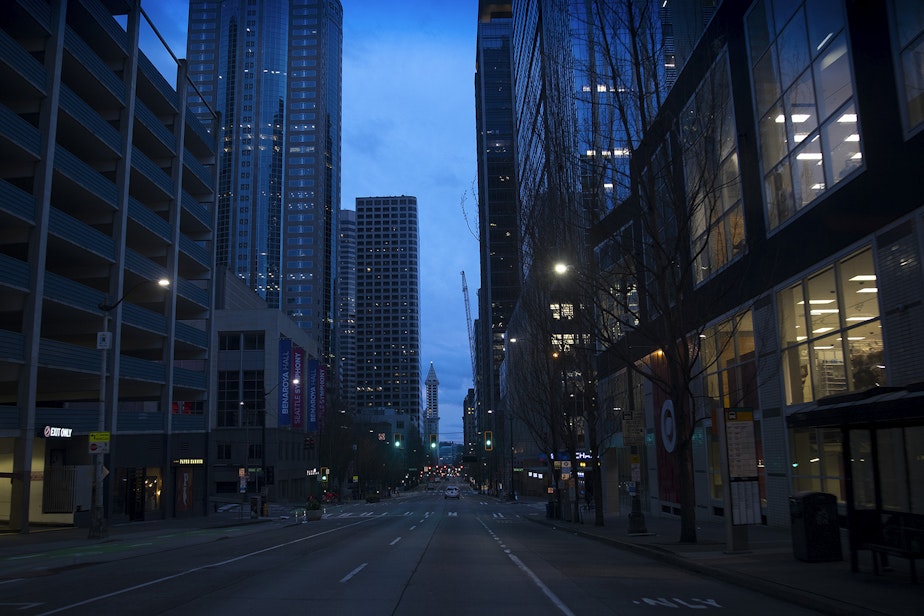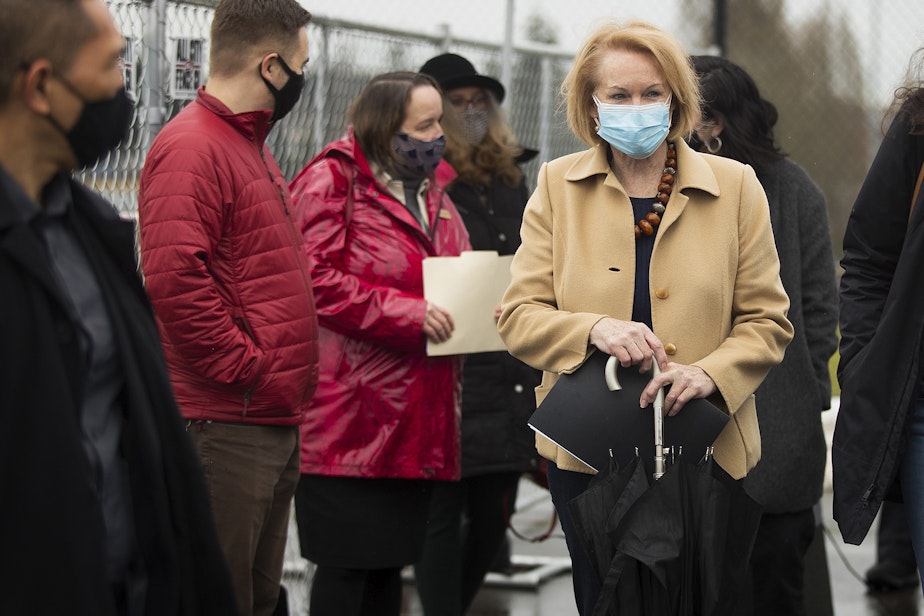Durkan: Downtown Seattle is 'absolutely central' to the city's recovery

The city of Seattle faces numerous challenges as vaccine rollout has been troubled across the state. The city opened two Covid-19 vaccination sites Monday. Another will open later this month.
Mayor Jenny Durkan has a goal to vaccinate 70% of the city’s adults, aiming to achieve this before any other major city. Despite this progress, there remains other issues, caused or exacerbated by the pandemic.
Among Durkan’s core concerns now: the future of downtown Seattle.

"Getting everyone vaccinated and reopening downtown alone will be two of the biggest things our city has ever done," she says. "Downtown is absolutely central to the economic and civic recovery of Seattle."
RELATED: Mass vaccination site coming to Seattle's Lumen Field
Business owners in the area have argued racial equity protests last summer have also contributed to the current state of downtown. And homelessness throughout Seattle remains a compounding issue. Durkan says the pandemic interrupted the city's progress on the issue.
It's a core issue that existed long before the pandemic. The pandemic has made it all the more visible, though, because shelters have had to limit capacity because of Covid restrictions. Like other indoor spaces, shelters have had to observe social distancing guidelines to mitigate the spread of the virus.
Reports emerged this week that the city would not seek as much federal funding as is available to house at-risk people in hotels.
The Biden administration has directed the Federal Emergency Management Agency to reimburse 100% of costs associated with the pandemic. The city, therefore, could front the money needed to house people in hotels with the promise of reimbursement later.
But the mayor's office has said that is simply not a viable option, noting reimbursement is not guaranteed, not swiftly anyway.
Durkan spoke with KUOW before it became clear the city did not see federal reimbursement as a viable solution. She said the focus should be on long-term housing options, not just temporary shelter.





